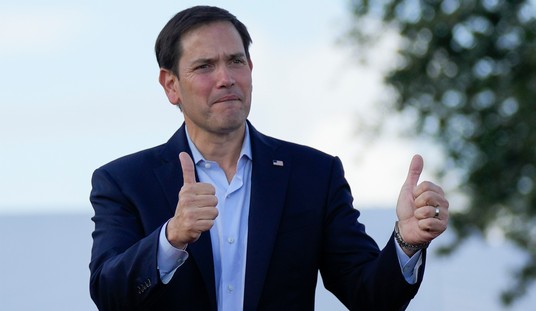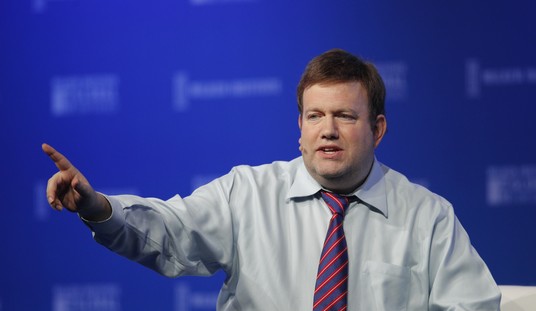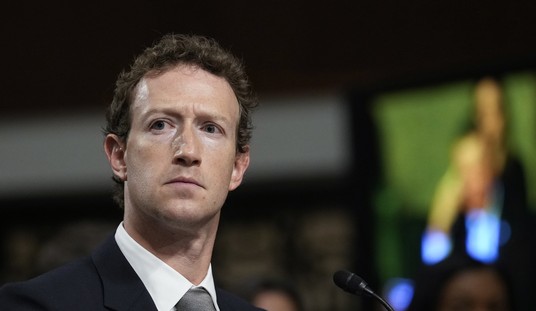Many a conservative pundit and elected Republican official has expressed befuddlement at Trump’s success at winning over Republican party voters, in spite of not really standing for many conservative or Republican principles. There is ample speculation, not to mention genuine preparation, that if Trump manages to secure the Republican nomination, conservatives will have to run a third party candidate in order to have someone who represents any of their principles on the ballots.
What these people miss is that the reason Donald Trump is winning is that a latent third party has long existed in America, and Donald Trump has successfully consolidated it. His next step, which he will attempt in July, is to hijack the existing infrastructure and ballot access of the Republican party and house this third party inside it.
Any country worth its salt will attempt to encourage loyalty to the homeland as a civic virtue. Regardless of the country, you will find many citizens within who will proudly profess that theirs is the greatest country on earth – even in the total absence that they are actually the best at anything. A certain amount of this national pride is necessary to the orderly function of any country and to the legitimacy of the government therein – especially when that government is democratically elected.
As with all good things, some people inevitably take civic pride to excess. That is not to say that there’s any such thing as loving your country too much, but rather that some people turn that civic pride into an erroneous belief that any and all problems that plague their great homeland cannot be the fault of the homeland or its citizens, but must somehow be the fault of foreigners or outside influences that the government should be able to control.
Many European countries already have political parties that rely almost exclusively on this impulse for their existence, such as the National Front in France or the Party for Freedom in the Netherlands. One reason that these parties are able to exist as separate and independent entities in European countries is, quite frankly, that they don’t have an equivalent of the American electoral college, which has had the (possibly unforeseeable) effect of enshrining a two-party system in America. Thus, leaders like Le Pen and Wilders have been able to maintain positions of elected national prominence and preach to the issues and concerns of these voters for years, whereas in America, voters of these sharply isolationist (and, let’s be perfectly frank, xenophobic) tendencies have had to eat the crumbs that fell from the tables of the Democratic and Republican parties.
Democrats catered to half the concerns of these voters by assailing free trade as an evil that shipped American jobs to foreign countries. Republicans catered to the other half by assailing illegal immigration as an evil that resulted in the loss of American jobs to foreign workers at home. For a Trump voter, this meant for years you basically picked which one you considered to be the greater evil and aligned yourself with a political party accordingly.
Of course, this arrangement could not last forever. Democrats took their share of the vote for granted, leading to the passage of NAFTA in the 90s, which was viewed by many as a fundamental and unforgivable betrayal. Republicans, for their part, repeatedly flirted with amnesty for illegal immigrants, culminating in legislative battles in 2006 (and again with the Gang of 8) that betrayed trust more or less permanently.
Enter Donald Trump, who for the first time preached to both of these concerns at once – and capitalized ruthlessly on the betrayal these voters felt at being looked down on by their respective political parties. The most correct observation Trump has made throughout this campaign is that he has brought new people (at least temporarily) into the Republican party. Various polls have indicated that huge portions of his voting base are disaffected Democrats who are horrified at the thought of putting another Clinton – who just earlier this year vacillated on the TPP – back into the White House.
That’s also the reason Trump has been having his butt handed to him at state party conventions where delegates are selected – it has nothing to do with any nefarious activity on Cruz’s part. It’s just indicative of the fact that the vast majority of Trump’s supporters simply haven’t been involved very much with the nuts and bolts of the GOP in the way that Ted Cruz’s most dedicated supporters have been. People who support Cruz are much more likely, on average, to have been spending their time the last few years being involved with their state and local party, and getting to know the ins and outs of things like state party conventions. People who support Trump are much more likely, on average, to have been spending their time bitching aimlessly about both parties from their couches.
See, Ted Cruz’s supporters tend to overwhelmingly be against illegal immigration, too, but for completely different reasons. Whereas Cruz supporters oppose illegal immigration because of an inherently conservative respect for the rule of law and/or the fiscal consequences of supporting a permanent underclass in America, Trump’s do so for more openly xenophobic and blame-related reasons.
The Trump supporter is infinitely more likely to trumpet, for instance, every story that features an illegal immigrant committing a violent crime, even though there is absolutely no evidence that illegal immigrants commit more violent crimes than the native population, and in fact there is good evidence that they commit less. Trump supporters oppose illegal immigration not because of the word “illegal,” but because immigrants make useful scapegoats for virtually every societal ill (including crime).
Trump had these people when he called the Mexican immigrants “rapists.” He solidified his hold every time he (implausibly) suggested that he could solve some societal problem (whether it be unemployment, heroin addiction, the national deficit) by promising to stop the Chinese and Mexicans from screwing us on trade deals. The fact that Trump’s proposals don’t make sense is completely beside the point; they match the central organizing political principle of his voters (the U.S. and its citizens are great, other countries and their citizens are decidedly less so), and therefore they are accepted because they fit those preconceived notions.
I have heard from some people within the GOP lately that they are considering just letting Trump have the nomination, in the hopes that he will get destroyed by Hillary in the general, and Trump’s voters will see that their hopes were in vain.
This is a foolish hope, and it should be abandoned immediately. If Trump loses, his loss will not be blamed on the rejection of his message by American voters, but on shadowy conspiracies or failure of the GOP party structure to support him adequately.
Now that Trump’s voters have heard a candidate who will speak to them in terms they can appreciate, the toothpaste is not going back in this tube. After betrayal by the Democrats and Republicans, they will simply wait around for someone to once again affirm their belief that the only thing a person really needs to believe in order to succeed is “America good, foreigners bad.”
The question the GOP needs to ask themselves is whether they want to be that party forever. I would certainly hope not; the experience of Europe suggests that such a party really tops out its national appeal at somewhere around 30%, even in the midst of a genuine migration crisis like the one Europe is currently experiencing. So unless the GOP is prepared to go back to the pre-WWI days of having less than 150 total members of Congress, the pain of losing this bloc of voters is something that should be risked now, rather than later.
And if these voters really are determined to force this implausible vision onto a political party, the GOP should at least force them to start their own infrastructure and forge their own way in terms of ballot access in all fifty states. Because the alternative is just to allow this latent third party to hijack their existing infrastructure for free, and toss the people who have built the party from the ground up out into the streets – all in the service of a man who a) isn’t conservative and b) will undoubtedly lose in landslide fashion.













Join the conversation as a VIP Member